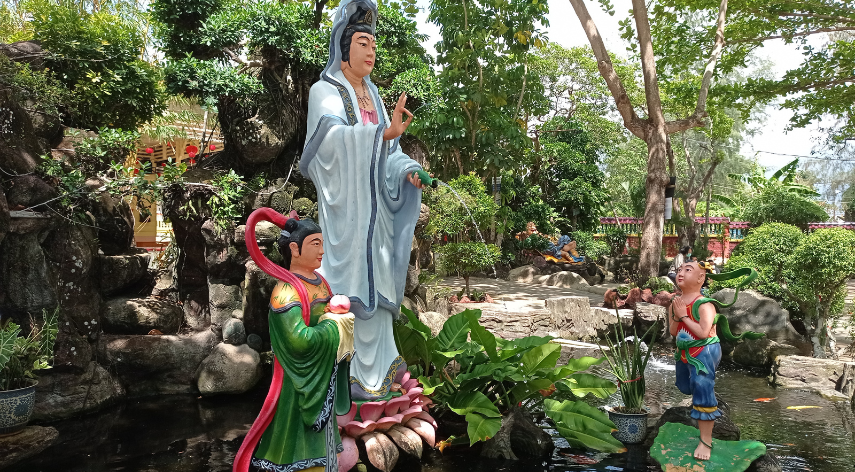Watashi ga juugo sai dewa nakunatte mo

Have you ever heard the phrase “watashi ga juugo sai dewa nakunatte mo“? This apparently simple Japanese expression holds profound cultural importance and gives a completely unique attitude on lifestyles. Join me as we delve into the idea of impermanence in Japanese way of life, discover how this word is woven into daily lifestyles, discover the philosophy in the back of it, and discover how we can follow its understanding to embody alternate and stay greater fully in the present second. Let’s embark on a journey of introspection and growth together!
What does
“What does ‘watashi ga juugo sai dewa nakunatte mo’ imply?” you might be wondering. Translated to “Even if I were to die at fifteen,” this phrase encapsulates the Japanese concept of impermanence and the brief nature of existence. It recognizes the fragility and fleetingness of our existence, reminding us to realize each second we’ve.
In Japanese lifestyle, this expression isn’t always morbid but as a substitute a reflection at the inevitability of trade and the significance of residing with mindfulness. It serves as a poignant reminder to cherish every experience, dating, and opportunity that comes our manner.
By knowledge the intensity at the back of those words, we are able to domesticate gratitude for what we’ve inside the present second and find peace in accepting life’s uncertainties.
The cultural importance of this phrase
In Japanese subculture, the word “watashi ga juugo sai dewa nakunatte mo” holds deep cultural importance. It displays the concept of impermanence, a concept deeply rooted in traditional Japanese beliefs and philosophies.
The know-how of impermanence emphasizes the temporary nature of lifestyles and encourages people to embody alternate with grace and acceptance. This mind-set is reflected in numerous elements of Japanese culture, from art to literature to day by day interactions.
By acknowledging the impermanence of all things, you could cultivate a experience of mindfulness and appreciation for the present moment. This word serves as a reminder to live absolutely in every second with out attachment or resistance to change.
In essence, embracing impermanence lets in us to permit pass of fear and anxiety approximately the destiny, permitting us to find peace and contentment within the right here and now.
Understanding the idea of impermanence in Japanese culture
In Japanese culture, the concept of impermanence, called “mujo,” holds large philosophical depth. It acknowledges the brief nature of all matters in lifestyles – from cherry blossoms blooming in brief to the converting seasons. This acceptance of impermanence encourages a deeper appreciation for the existing moment and a experience of mindfulness in every day lifestyles.
Embracing mujo teaches us to allow move of attachment to cloth possessions or constant outcomes. Instead, it invites us to discover splendor in fleeting moments and cost reports over possessions. By understanding that not anything lasts all the time, we can domesticate gratitude for what we’ve got now.
Impermanence reminds us that alternate is inevitable and frequently brings boom and new opportunities. Rather than resisting exchange, embracing mujo allows us to conform gracefully to existence’s transitions and uncertainties with resilience and an open heart.
How this phrase is used in every day existence
In Japanese culture, the phrase “watashi ga juugo sai dewa nakunatte mo” holds a deep which means that extends beyond its literal translation. This expression reflects the reputation of impermanence and the brief nature of existence. It serves as a reminder to cherish every moment and embody alternate with grace.
In every day lifestyles, this phrase is often used to bring resilience inside the face of adversity or unforeseen situations. It encourages people to evolve to new conditions, conquer challenges, and discover internal power amidst uncertainty.
Whether dealing with demanding situations at work, navigating private relationships, or dealing with sudden occasions, incorporating this attitude can help cultivate a feel of peace and versatility. By acknowledging impermanence and embracing trade as a herbal part of life’s adventure, you may navigate transitions with greater ease and mindfulness.
The philosophy at the back of “watashi ga juugo sai dewa nakunatte mo” underscores the importance of residing within the present second without clinging to beyond regrets or anxieties approximately the destiny. It invitations individuals to delight in experiences fully, respect what they have now, and allow move of attachments that restrict private growth.
By embodying this precept in every day interactions and choice-making approaches,
people can cultivate resilience, adaptability,
and gratitude for existence’s ever-converting panorama.
The philosophy at the back of
The philosophy behind “watashi ga juugo sai dewa nakunatte mo” delves into the essence of impermanence. In Japanese way of life, this concept emphasizes the transient nature of existence and the inevitability of change. It encourages people to embody impermanence rather than withstand it.
This phrase serves as a reminder to cherish each moment and appreciate the splendor in transformation. By know-how that nothing lasts all the time, we will cultivate gratitude for what we’ve inside the gift second.
Applying this mind-set to our own lives lets in us to let go of attachment to material possessions or fixed results. Instead, we learn to drift with life’s ebbs and flows, locating peace in accepting the ever-changing nature of lifestyles.
Embracing impermanence does not mean residing with out cause or direction; as a substitute, it way being adaptable and resilient in the face of uncertainty. This philosophy invitations us to stay authentically and fully in every passing second.
Applying this mindset to our personal lives
Embracing the idea of impermanence in our very own lives may be a powerful device for non-public growth and resilience. Just like the converting seasons, we too go through distinctive phases in lifestyles – some joyful, others challenging. By expertise that nothing is permanent, we discover ways to admire the prevailing second more deeply.
Instead of clinging onto matters or conditions that are fleeting, we are able to cultivate a attitude of letting move and adapting to change gracefully. This flexibility lets in us to navigate life’s usaand downs with extra ease and reputation. It reminds us to cherish what we’ve got at the same time as it lasts, with out getting connected or fixated on results.
By embracing impermanence, we invite curiosity and openness into our lives. We grow to be extra receptive to new stories and possibilities, knowing that each moment is particular and fleeting. This mind-set encourages us to savour the beauty of now as opposed to residing on beyond regrets or traumatic approximately an unsure future.
Applying this philosophy doesn’t mean ignoring duties or goals; alternatively, it invitations us to technique them with a sense of lightness and detachment. When faced with demanding situations or setbacks, we will remind ourselves that the whole thing is transient – inclusive of pain and hardships.
Incorporating the know-how of impermanence into our every day lives facilitates us cultivate gratitude for what is gift right here and now. It teaches us resilience in instances of adversity and humility all through moments of fulfillment. Letting go of attachments frees us from useless burdens, allowing room for growth, joy, and contentment along our ever-evolving journey referred to as existence.
Conclusion: Embracing exchange and dwelling in the present second
Life is a steady flow of change, like a river that in no way remains the identical. Embracing this impermanence permits us to understand every moment for what it’s far, without clinging to the beyond or demanding about the destiny.
When we allow move of attachments and expectations, we loose ourselves from needless suffering. Instead of resisting exchange, we can learn how to adapt and develop with grace.
Living in the present moment manner fully experiencing lifestyles as it unfolds, without being consumed by regrets or anxieties. It’s about savoring every breath, each smile, every sundown without distractions.
By cultivating mindfulness and popularity, we cultivate internal peace and resilience. We end up extra bendy and open to new opportunities that come our way.
So let’s embrace alternate as an opportunity for boom as opposed to a hazard to our stability. Let’s cherish every moment as a present well worth treasuring.
FAQs:
Q: What does “watashi ga juugo sai dewa nakunatte mo” mean in English?
A: The word translates to “Even if I die at 15 years vintage” in English.
Q: How is the concept of impermanence pondered in Japanese tradition?
A: Impermanence is a significant theme in Japanese culture, influencing art, literature, and each day life. It teaches human beings to comprehend the splendor of transience and include change gracefully.
Q: Can we apply the philosophy of impermanence to our own lives?
A: Yes, via expertise that nothing lasts all the time and studying to let go of attachment, we are able to live greater mindfully and absolutely embody each moment as it comes.
Q: How can we exercise dwelling inside the gift second?
A: Mindfulness strategies together with meditation, deep respiratory sporting events, or genuinely focusing on our senses can help us domesticate cognizance and presence in our each day lives.
Embracing the concept of impermanence permits us to navigate life’s uncertainties with grace and resilience. By acknowledging that alternate is inevitable and appreciating the fleeting nature of each experience, we will learn to cherish each second for what it is – a precious present. Let’s try to embody the spirit of “watashi ga juugo sai dewa nakunatte mo” in our personal lives and find peace in embracing exchange with an open heart.




